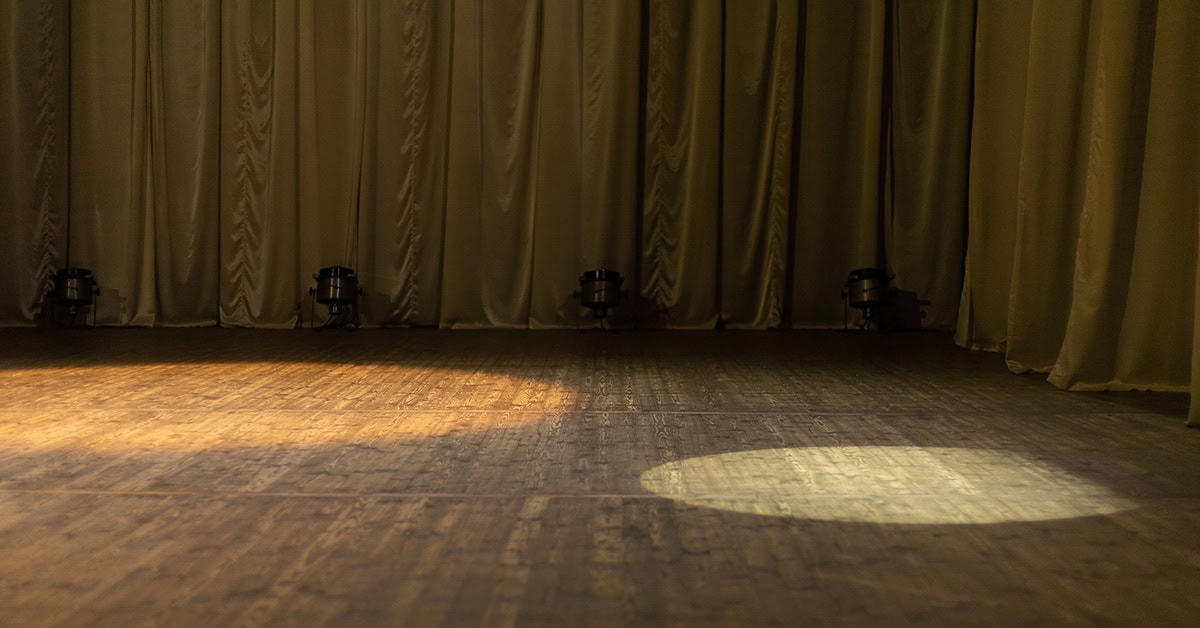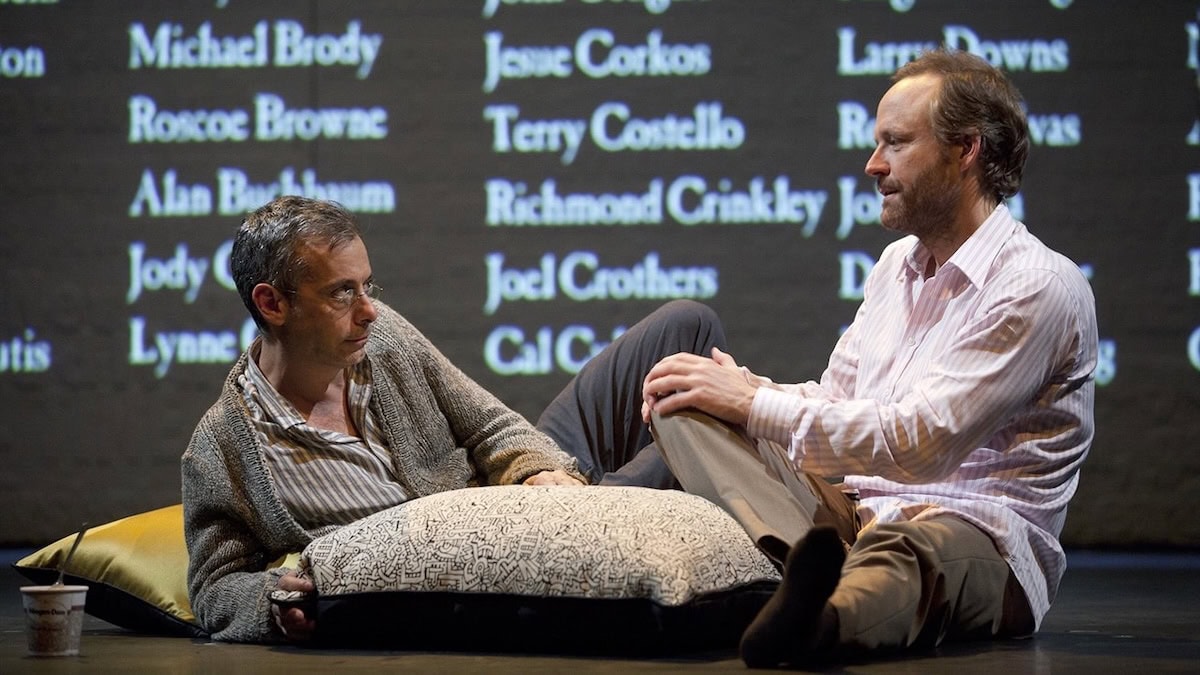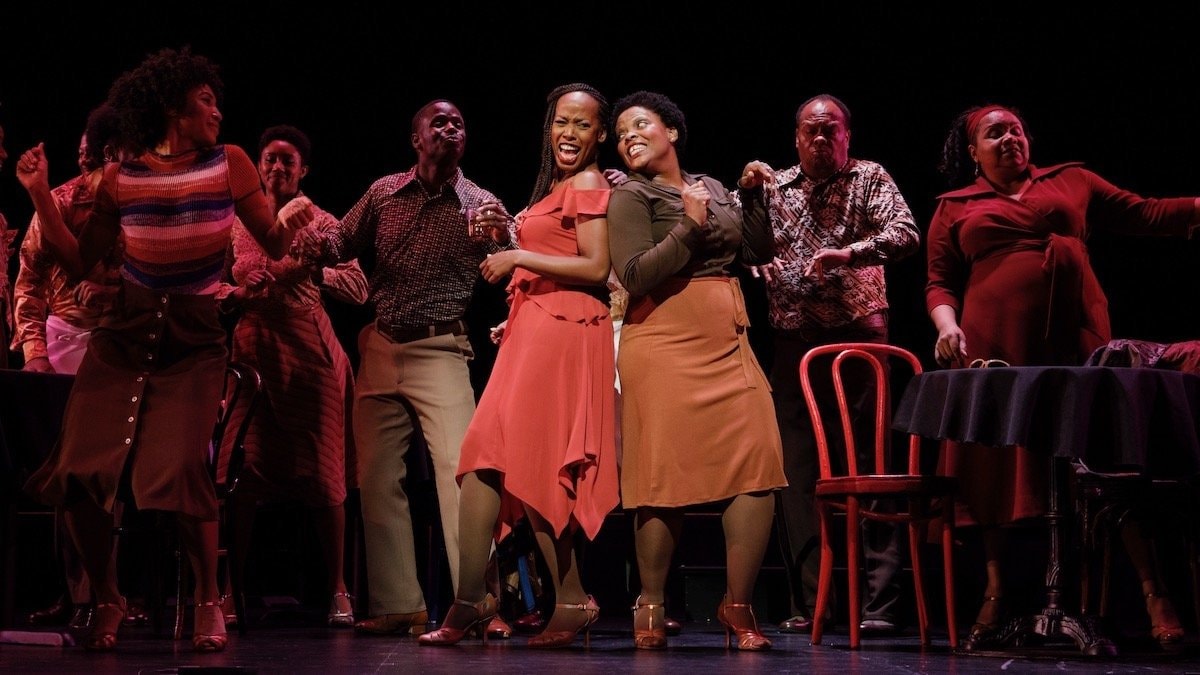
Tina Howe is one of the world’s greatest living playwrights. Her groundbreaking, innovative plays include Birth and After Birth (US), Museum (US/UK), The Art of Dining (US/UK), Painting Churches (US/UK), Coastal Disturbances (US), Approaching Zanzibar (US) and Pride’s Crossing (US/UK). In April 2023, Concord Theatricals proudly published Howe’s most recent play, Where Women Go (US/UK), a trilogy of short one-acts exploring the humor and absurdity of women’s daily lives as they visit the dermatologist, eat at Subway and go shopping.
At a workshop reading of Where Women Go, playwright Sarah Ruhl spoke movingly of her relationship with Howe, who has been her longtime mentor and friend. A two-time Pulitzer Prize finalist herself, Ruhl has written moving, hilarious and transformative plays, including In the Next Room, or the vibrator play (US/UK), For Peter Pan on her 70th Birthday (US/UK), The Oldest Boy (US/UK), Stage Kiss (US/UK), Eurydice (US/UK), How to Transcend a Happy Marriage (US/UK) and Becky Nurse of Salem (US/UK).
Here are Ruhl’s remarks about her friend and mentor.
When, after a week, I dropped out of graduate school, one of the first people I called for advice was Tina Howe. I was suddenly a wayward playwright in New York City with no job and no guidance. I had grown up reading Tina’s groundbreaking plays. Some of her plays are absurdist, surreal comedies about motherhood, others are formally inventive plays about her blue-blood family. She changed the landscape for women playwrights forever. She also changed the landscape for any American playwright working in an absurdist idiom, and for mothers. My dear friend, the playwright Andy Bragen, had studied with Tina in college, and after my graduate school drop-out episode, encouraged me to reach out to her. I was nervous to speak to a literary hero, thanked Tina profusely for speaking with me over the phone, and told her that I was a recent graduate school drop-out.
She said (and I am paraphrasing), “Oh that’s wonderful! When I was your age no one went to playwriting school! We just lived. Sam Shepard, Ntozake Shange, we all lived and wrote and went to Paris and smoked pot and no one went to school.” She said, “Everything I learned, I learned from reading and seeing the plays of Ionesco. Don’t worry, just live in New York City, see as much theatre as possible and keep writing.” I followed her advice.
“Don’t worry, just live in New York City, see as much theatre as possible and keep writing.”
When my first play was produced by Clubbed Thumb in New York City, downtown for three nights at the wonderful Ohio Theater, there was Tina, with a pink crystal Ganesh elephant in her hands that she gave me as a present. (I now take that Ganesh with me to every opening.) Tall and slim, her hair always combed neatly around her ears, she’s usually swathed in some kind of extraordinary tunic or robe with flamboyant patterns—something that gives the impression of wings. She once gave me earrings with little feathers inside a glass dome, and she probably had a pair herself. She is a fabulist, and she always looks fabulous.
One time we did a panel together and I complimented her on her seashell necklace and she said, “You want it? You can have it!,” undoing the clasp. I learned to be careful of complimenting Tina on any jewelry or clothes as she would rip it off and promptly give it to me. One time I complimented Tina’s bracelet and she whipped it off to give to me. Out of the corner of my eye, I saw that her husband Norman looked pained; it turned out he’d given it to her. I tried to refuse the gift, but she sent it anyway, beautifully wrapped.
She has been at every single play I’ve ever had in New York City, calming my nerves, giving me buoyancy during the stressful time of previews. After I had babies, she would stop by and comfort me through the anxiety of wondering if I’d ever balance writing and mothering. She would say, “I used to write at the dining room table after dropping the kids at school. At 2pm an internal alarm would go off and I would know it was time to stop writing and pick them up. No one wants to write more than five hours a day anyway, so it’s just a perfect schedule.” And she added, “When they’re babies, just roll around with them on the floor. Don’t even try to write, it goes so fast.” I tried to follow her advice.
Over the past ten years, she cared tirelessly for her husband Norman who had a long, arduous siege of Alzheimer’s. Norman’s adoration of Tina was beyond. When I visited them, they would sometimes fall into a litany:
“Where did we meet, Norman?” she asked.
“Arthur Loeb’s house,” he answered.
“And what was I wearing?”
“A red dress.”
“Yes, but I had no breasts and so I covered up the decolletage with my hands and Norman said: Either wear it or take it off ! Norman, who is the cutest?”
“You are.”
“No, you are.”
Then Norman fell asleep in his chair and Tina told me, “I’m still ambitious. I still want to write—I want to write about unexplored terrain. Women are still an undiscovered country.”
“I want to write about unexplored terrain. Women are still an undiscovered country.”
Before they moved into assisted living for Norman, Tina started the task of downsizing her apartment. She insisted that I take home the dollhouse she’d had built with a replica of Paris inside. She showed me the extraordinary object. “The lights go on inside!” she said, turning on a switch. “There is the Pont Neuf. There’s the Seine!” Indeed, she’d asked a set designer to build a miniature Paris for her in the dollhouse. “Take it home,” said Tina, “You’ll see, your children will disappear inside of it and go to Paris for the whole afternoon.”
I left with the dollhouse. Three weeks later, they moved, and Norman died. After sixty years of marriage.
Recently, Tina came to see my play at Signature Theatre, and we had lunch with a large group of playwrights beforehand. When I asked what’s new, she said, “What’s new in my world is that everything is very much the same,” adding that, “Things collapse over time into strange new configurations.” She said that she sees it as her duty to cheer up all the widows at the her new home. She said, “I’ve decided my new job is to be kind and helpful to the people at the home instead of being upset that I am there. I meet a newcomer, almost always a widow, and I say, ‘You might be homesick, but buck up, we have good entertainment here.’”
I asked her how she was able to be such a generous teacher, and she said, “I think teaching is about generosity, about wanting to give and to be kind. I never had any training to be a teacher. I knew how to write plays and I didn’t know how to teach, but suddenly, when my plays were being done, I was in a position to help other people get their plays done. And now I’m an elder statesman. I have a perch. The only way out, the only key—is to be generous. Be generous if you can.”
“The only way out, the only key, is to be generous. Be generous if you can.”
I thought about that phrase for a long time: Be generous if you can. Not just be generous, but if you can. Tina seemed to be pointing to the fact that generosity was a privilege, a practice and an ability. Every time I see her she has a beautifully wrapped gift for me, and for everyone else at the table. At lunch, she gave the other playwrights at the table beautifully wrapped Pez dispensers for Easter. She’s always understood the power and magic of opening a gift, of a gift passing from one hand to another.
To learn more about the plays of Tina Howe, visit her author page at Concord Theatricals in the US or UK.
To learn more about the plays of Sarah Ruhl, visit her author page at Concord Theatricals in the US or UK.
Header Image: Sarah Ruhl (left) and Tina Howe (Photos courtesy of the authors)

Recommended Shows for Drama Festivals

The Truth Behind… The Normal Heart

